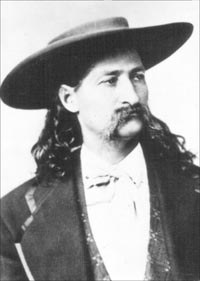What happened on this week July 14-20, in crime history. Mary
Surratt and the other Lincoln assassination conspirators were executed (July 7,
1865); Terrorists attack the London transit system (July 7, 2005); Warren Earp,
the youngest of the famous gun fighting brothers was murdered in Wilcox,
Arizona (July 7, 1900); Francis Gary Powers was charged with espionage (July 8,
1960); Soapy Smith, one of the most notorious con men of the West was murdered
(July 8, 1898); Exxon Valdez captain, Joseph Hazelwood’s conviction was
overturned (July 10, 1992); Old West gunslinger “Buckskin” Frank Leslie
murdered a prostitute (July 10, 1889); The Barefoot Bandit was captured in the
Bahamas (July 11, 2010); The Moors Murderers began their killing spree in
England (July 12, 1963); Wild Bill Hickok established his reputation as a
gunslinger by shooting three men in Nebraska (July 12, 1861); Last woman
executed in Britain for murder (July 13, 1955); Jean Paul Marat was
assassinated in Paris (July 13, 1793).
Highlighted crime of the week –
On July 12, 1861, Wild Bill Hickok begins to establish
his reputation as a gunfighter after he coolly shoots three men during a
shootout in Nebraska. Born in Illinois, James Butler Hickok moved to Kansas in
1855 at the age of 18. There he filed a homestead claim, took odd jobs, and
began calling himself by his father's name, Bill. A skilled marksman, Hickok
honed his abilities as a gunslinger. Though Hickok was not looking for trouble,
he was always ready to defend himself, and his ability with a pistol soon
proved useful.
By the summer of 1861, Hickok was working as a stock
tender at a stage depot in Rock Creek Station, Nebraska Across the creek lived
Dave McCanles, a mean-spirited man who enjoyed insulting the young stockman. Hickok
took his revenge by secretly romancing McCanles' mistress, Sarah Shull. On July
12, 1861, the tension between the two came to a boiling point when McCanles learned
about the affair between Shull and Hickok. He arrived at the station with two
other men and his 12-year-old-son and exchanged angry words with the station
manager. Then McCanles spotted Hickok standing behind a curtain partition. He
threatened to drag "Duck Bill" outside and give him a thrashing.
Demonstrating remarkable coolness for a 24-year-old who had never been involved
in a gunfight, Hickok replied, "There will be one less son-of-a-bitch when
you try that."
McCanles ignored the warning. When he approached the
curtain, Hickok shot him in the chest. McCanles staggered out of the building
and died in the arms of his son. Hearing the shots, the two other gunmen ran
in. Hickok shot one of them twice and winged the other. The other workers at
the station finished them off. The story of Hickok's first gunfight spread
quickly, establishing his reputation as a skilled gunman. In 1867, Harper's New
Monthly Magazine published a highly exaggerated account of the shoot-out which
claimed Hickok had single-handedly killed nine men. The article quoted Hickok
as saying, "I was wild and I struck savage blows." Thus began the
legendary career of "Wild Bill." For the next 15 years, Hickok would
further embellish his reputation with genuine acts of daring, though the
popular accounts continued to exceed the reality. He died in 1876 at the age of
39, shot in the back of the head by a young would-be gunfighter looking for
fame.
Michael Thomas Barry is a columnist for www.crimemagazine.com and is the author
of numerous books that include the award winning, Murder and Mayhem 52 Crimes
that Shocked Early California, 1849-1949 (2012, Schiffer Publishing).
The book was the WINNER of the 2012 International Book Awards and a FINALIST in
the 2012 Indie Excellence Book Awards for True Crime. Visit the author's
website for more information www.michaelthomasbarry.com.
His book can be purchased from Amazon through the following link:



No comments:
Post a Comment